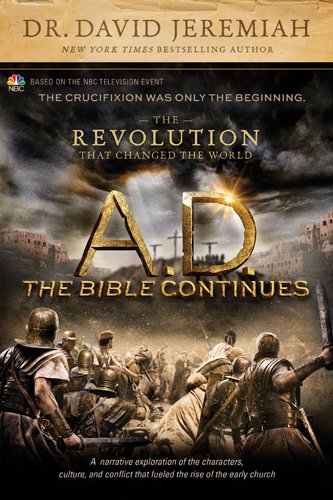 A.D. The Bible Continues: The Revolution that Changed the World by Dr. David Jeremiah
A.D. The Bible Continues: The Revolution that Changed the World by Dr. David Jeremiah
Straight out of the gate, let me say that David Jeremiah’s A.D. The Bible Continues: The Revolution that Changed the World (hereafter, A.D.,) surprised me. Knowing it was connected to the NBC television event that dramatizes the events of the biblical book of Acts, I expected to find that Jeremiah had written some Bible-blurbs for a ghost-written novel. This is certainly not that.
In fact, what I have on my shelf for A.D. will function well for a church group study on the basics of the New Testament after the Gospels. It is clearly written, well organized, and accurate.
What is A.D.? Essentially, it is an explanation of the book of Acts with background material in history and Old Testament theology placed alongside it. Further, Jeremiah gives some flash-forwards to the materials in the rest of the New Testament, like Paul’s Epistles.
Overall, this work is doctrinally on-target, though clearly there is an attempt to remain neutral on some matters that are debated today. Baptism is discussed but not nailed down, likewise the role of church governance and how exactly Christian people interact with a pagan government is left for the reader to hash out elsewhere.
This is more on the mark for a youth to adult range study into the basics of the early church. How did we get from the Resurrection to the era of the church? That is the question at stake, and the question Jeremiah provides a solid Bible framework for in this book.
Free book in exchange for the review.





